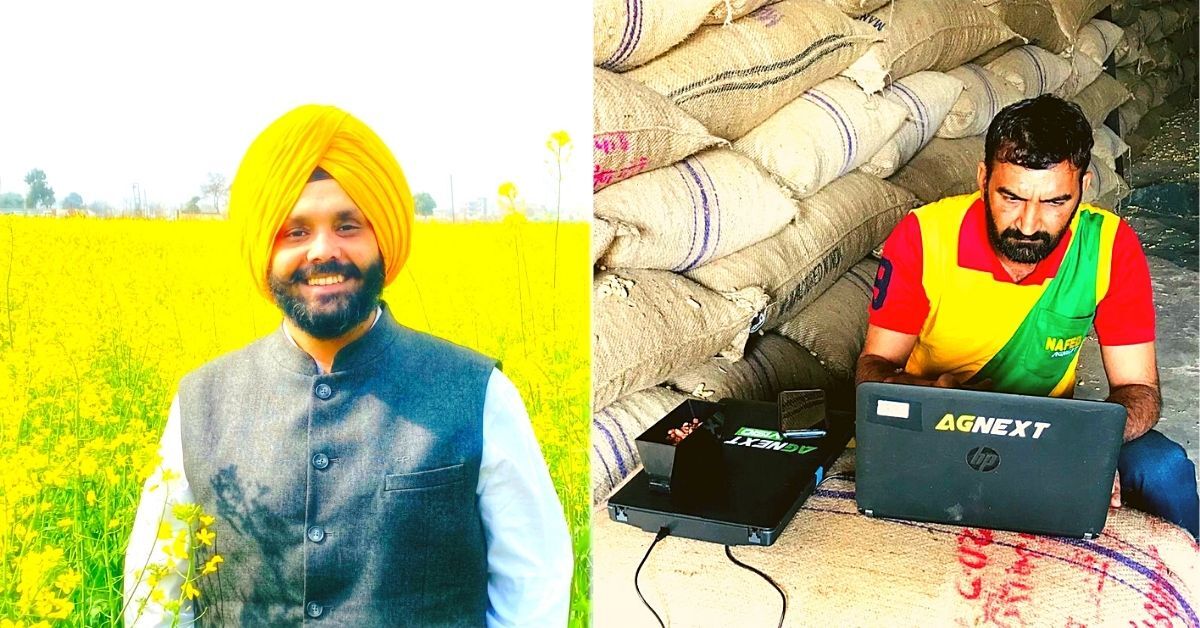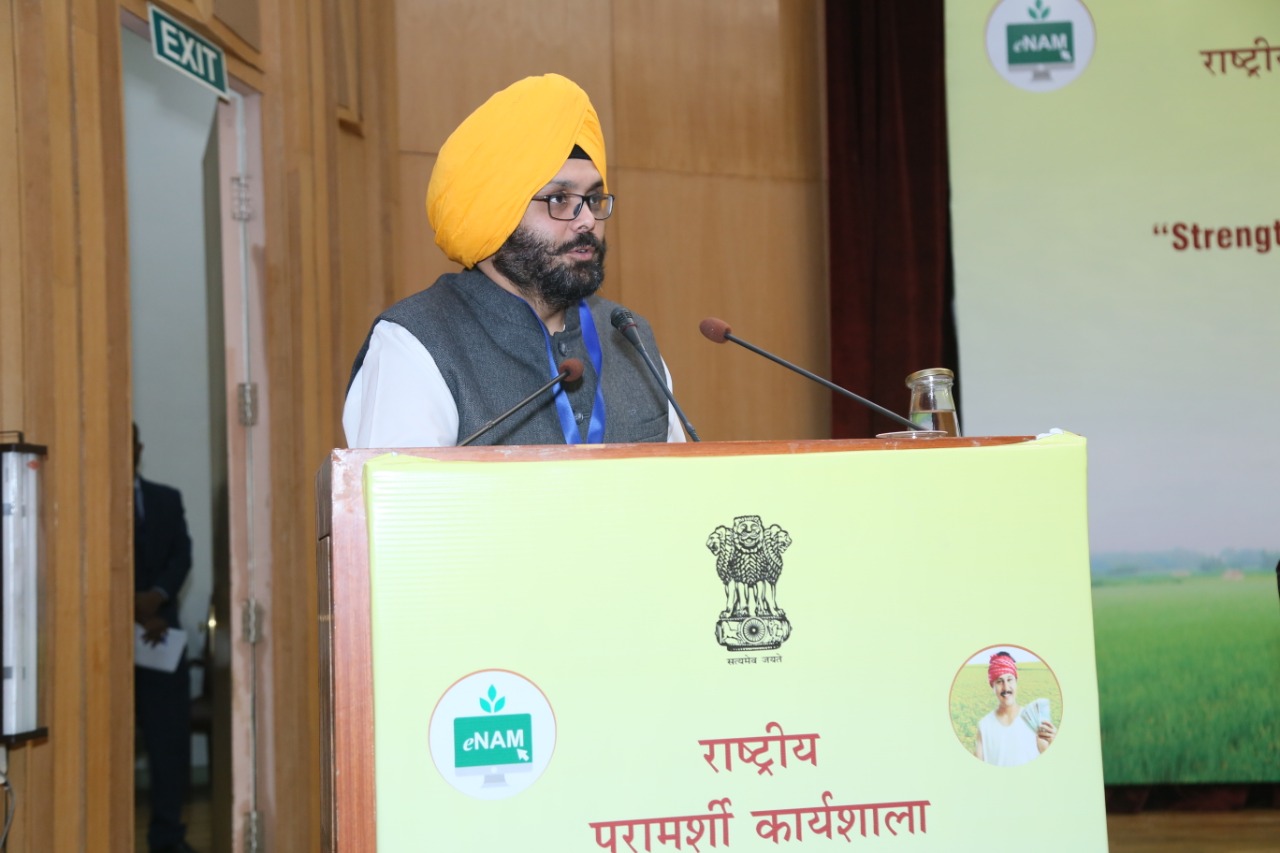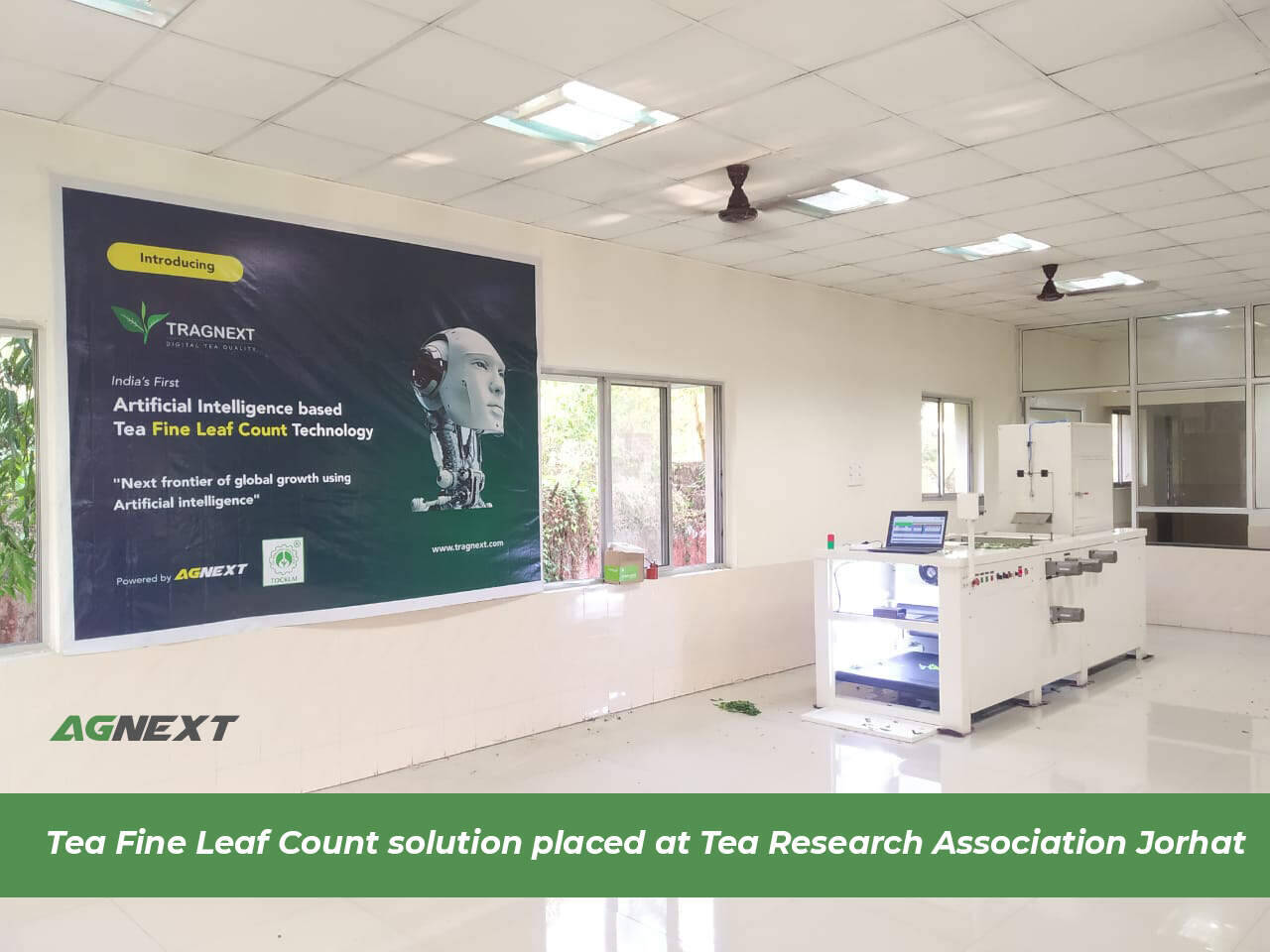Tesla of Agriculture: ‘Best Agri-Tech Startup’ Can Analyze Food Quality in 30 Secs
“It’s like an MRI for food. In less than 30 seconds, Qualix Technology can analyse every aspect of food that we can trade."

Taranjeet Singh Bhamra, a graduate of agricultural engineering from IIT-Kharagpur, was a project manager working for a food manufacturing company in early 2004 when he visited the local mandi in Shahjahanpur, Uttar Pradesh. Working with the company since 2002, he was travelling to different corners of rural India to better understand the issues associated with the agriculture sector. What he saw at Shahjahanpur changed him immeasurably.
“I saw a farmer and his young son come to sell their produce on a bullock cart. I remember seeing the arhitiya (middle man) pushing them away saying their produce lacks quality after barely looking at it. For the next six days, the father and son stood in the sun and rain waiting for the arhtiya to buy their produce. They eventually had to sell it to him at a fraction of the cost. Seeing the middle man break them in this manner hit me hard because no technology existed to accurately ascertain the value of their produce and a family’s livelihood was being determined on very dubious grounds. But I didn’t have any money or influence at the time to help them,” recalls Taranjeet, speaking to The Better India.
Despite quitting his job at the company a year later, earning an MBA from IIM-Calcutta and working for a series of consultancy firms in the Middle East and Europe for the next decade, Taranjeet never forgot that incident in Shahjahanpur. At the height of his career working for a major global consultancy in 2015/16, he quit to come back and fix Indian agriculture.
In his eyes, the biggest concern in Indian agriculture is the lack of trust in key transactions starting at the procurement stage where produce is assessed on very subjective grounds. Vast amounts of farm produce is assessed by traders or middle men by what they see and feel with their eyes and hands based on which prices are determined. Over the years, this mode of assessment has become a tool with which traders and middlemen exploit farmers.
“Farmers get paid twice in a year, but their performance is never given due consideration since prices for their produce are set arbitrarily. Season after season a farmer arrives at the mandi with his produce and faces the same situation. Thus, farmers have no incentive to improve their practice. For food processing businesses, traders and other allied players in agri-commodities, this is a bigger concern because they are purchasing millions of tonnes from farmers without any proper qualitative assessment. Finally, for consumers, this is obviously a problem because of concerns surrounding adulteration,” he says.

Creating an ‘MRI for food’
Upon his return to India, Taranjeet met with experts in different agricultural universities and key stakeholders in the business. What he found was that the same problems existed in Indian agriculture, but technology had changed immeasurably with the growth of artificial intelligence, computer vision (an interdisciplinary field that deals with how computers can gain high-level understanding from digital images/videos) and spectral science.
To facilitate his research, Taranjeet founded a startup, AgNext, in 2016, and began hiring scientists from his alma mater. For the next three years, the IIT-KGP incubated startup dedicated themselves to research work and building a system that would address their core concern. Fortunately, they had investors who truly believed in their idea because they saw genuine long term potential.
Based out of Punjab today, the startup is a leading technology platform for agribusinesses aiming to solve the problem of food quality to accelerate transactions and build sustainability. Its breakthrough proprietary solutions using AI, Spectral Science, Computer Vision and IoT Sensing are changing the approach of agribusinesses towards procurement, trade, production and consumption of commodities like milk, tea, grains, animal feed and spices, claim AgNext. They have created a singular platform called Qualix Technology through which multiple agri-commodities can be assessed in just 30 seconds.
“It’s like an MRI for food. In less than 30 seconds, Qualix can analyse every aspect of food that we can trade. Our Qualix Technology is an AI-enabled revolutionary platform that instantly analyses quality and safety and provides traceability of agri-commodities. Our technology has the ability to instantly test trading and safety parameters for grains, oilseeds, tea, spices, coffee, milk and animal feed, particularly at the procurement stage,” he notes.
No internet connection is required to operate the device, though connectivity is required to store data into the Qualix platform which stores all the necessary data. From farm gates, warehouses and mandis to factories of major agri-business enterprises, their portable and lightweight device operates using a battery. Besides its ability to seamlessly integrate with multiple enterprise resource planning (ERP) systems through communication interfaces, the device is dust and water resistant and can function across a range of climatic conditions.
“The benefits are immense because there is no human involvement, it’s totally digitised and users can access important data. More importantly, however, our technology brings trust to any transaction in agriculture. With the right technology in place, farmers can obtain accurate prices for their produce and greater incentive to improve their farm practices for better quality crops. For businesses, this technology helps save money and increase profitability because now they know what they’re paying for. Finally, for consumers, we ensure quality by accurately ascertaining whether there are adulterants or not,” argues Taranjeet.

Qualix Technology
AgNext is a startup which functions at the mid-stream of the agriculture sector, which is the period just after the harvest when procurement is happening. That’s where their technology sits. What they are solving is quality and hence their motto ‘Quality Food For Billions’.
Qualix Technology assesses the physical quality and chemical properties of food. To analyse the physical quality, Qualix employs computer vision backed by a lot of AI. If we take food grains, for example, Qualix can measure how many of them are broken, damaged or infested. Earlier this was measured by traders or middle men by carrying it in their hands.
With computer vision, one can take a picture and get a complete idea about the morphological properties of food related to size, colour and texture. In the tea industry, for example, it can analyse 18 different classifications of tea leaves and determine their quality standards. Overall, this system allows for better purchase decisions.
Qualix also analyses food for its chemical properties like, for example, how much protein content is present in a certain packet of animal feed or how good is the quality of chilli based on their colour and pigmentation. Tests for these usually happen in laboratories where results arrive in 5 to 10 days, but using spectroscopy and molecular science it can obtain a complete analysis of the food’s chemical properties within 30 seconds as well, claim AgNext.
Take the example of milk. It is well known that milk and its associated products have been found with a variety of adulterants like palm oil, urea, detergent, paint and caustic soda. In just 30 seconds, Qualix provides accurate composition of fat, protein, SNF (solid not fats) and 6 other trade parameters at major milk chilling centres besides detecting vegetable oil, urea, detergent, melamine and starch adulteration as well.
Naturally, developing Qualix took a serious amount of time, massive effort and a significant amount of hardware innovation. They have about 12 patents currently, but are going for more than 70 in the next two years. “We are like the Tesla of Indian agriculture. We are building something that will be far more impactful in the coming future by ensuring that transactions in the agriculture sector are clean, neat and pure,” adds Taranjeet.
Making a case for tea
Once Qualix caught on the agricultural sector, everyone wanted a piece of their technology. In 2018, the Tea Research Association (TRA) partnered with AgNext to develop TRAGNEXT, an offshoot of Qualix. Deployed in tea estates of Goodricke, Rossell Tea and Bokahola Tea, TRAGNEXT employs computer vision to ascertain the fine leaf count (FLC) percentage within just two minutes. This eradicates any manual method of checking tea leaf quality.
“Automation and digitisation of processes and operations is a necessity for the tea industry. The recent initiative of AgNext in developing a fine leaf count machine is a step in the right direction. We are looking forward to further improvements in the machine which will calculate fine leaf count by numbers and weight. Also, it will calculate surface moisture to arrive at the net weight of the leaf,” says JS Chahal, General Manager (Production) at Rossell Tea.
“In grains, we are working across seven states impacting 1.5 million tonnes of procurement through our system. That will ensure that we are able to give farmers the right price based on quality. We will be in about 1,000 milk chilling centres very soon out of the nearly 13,000 that exist nationwide, ensuring that the milk we drink is unadulterated. Also, we are working with the Indian government, the spice and animal feed industry as well,” says Taranjeet.
Today, their technology sits in factories like Goodricke, Rossell Tea and Bokahola Tea, who procure tea leaves straight from the plantation, besides major FMCG companies like Hindustan Lever which procures a lot of grain for Horlicks. Qualix also sits in warehouses where food is bought as in the APMC mandis. Another location where you will find this system is at farm gates, where farmers want quality valuation to be done, particularly for milk and spices. After quality valuation, these commodities make their way to mandis and traders sitting there. Major players like Amazon, Udaan and anyone engaged in online trade of agri-commodities also deploy their technology. Finally, AgNext’s technology is also deployed by fellow agri-tech startups in the business of buying and selling produce.
“We have implemented AgNext’s AI-based quality testing technology for quality testing of physical and chemical parameters of commodities. It has efficiently reduced manual intervention and dependency on human manpower. It has also decreased the turnaround time for quality testing from hours to a few minutes at Arya collaterals’ warehouse. The end-to-end integration with the system has made the entire quality testing process seamless and enabled quick decision making which is critical to agricultural supply chains,” says Anand Chandra, Executive Director of Arya Collateral Warehousing Services Pvt Ltd.
Accolades and Looking Ahead
Last year, AgNext received the Best AgriTech Startup of India award from the Union agriculture minister, Narendra Singh Tomar, during the Outlook Agriculture Conclave & Swaraj Awards 2020. At this juncture, AgNext is a B2B enterprise and in the next few years, they are looking to scale up to at least 60 countries. Thus far, it has received funding worth USD 4.1 million from venture capital funds Omnivore and Kalaari Capital.
“Our tech benefits businesses and farmers and we will continue to witness the positive impact of our work. The business model we have created, where we only charge businesses for every transaction and not farmers for using Qualix, is creating waves. This will be the go-to model for building more sustainable impact in the farm sector. I’m glad that I didn’t start a typical supply chain agriculture startup. These incredible technological developments may not have happened if I had subsumed myself in the trade business,” he says.
(Edited by Yoshita Rao)
Like this story? Or have something to share? Write to us: [email protected], or connect with us on Facebook and Twitter.
If you found our stories insightful, informative, or even just enjoyable, we invite you to consider making a voluntary payment to support the work we do at The Better India. Your contribution helps us continue producing quality content that educates, inspires, and drives positive change.
Choose one of the payment options below for your contribution-
By paying for the stories you value, you directly contribute to sustaining our efforts focused on making a difference in the world. Together, let’s ensure that impactful stories continue to be told and shared, enriching lives and communities alike.
Thank you for your support. Here are some frequently asked questions you might find helpful to know why you are contributing?


This story made me
-
97
-
121
-
89
-
167











